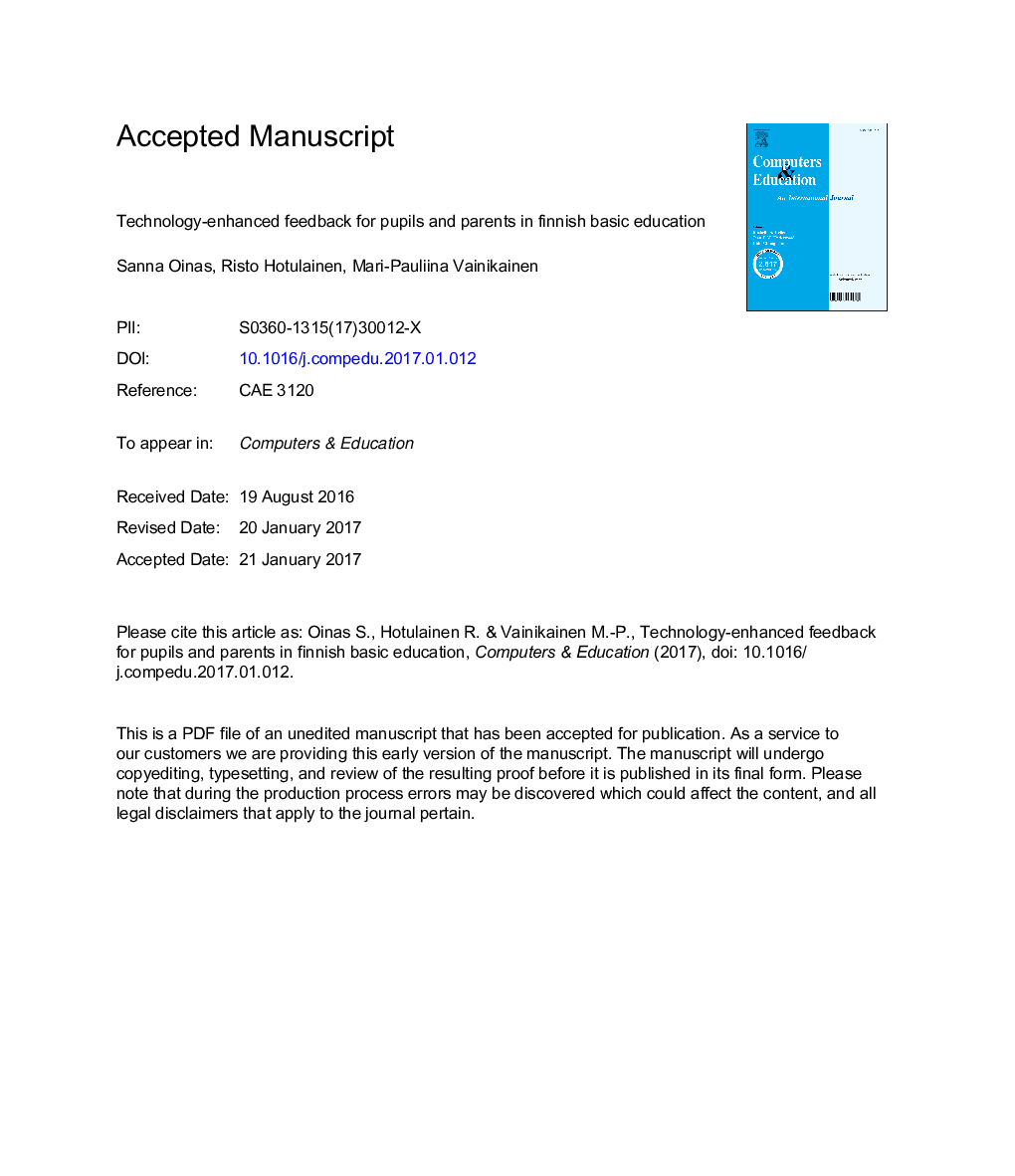| Article ID | Journal | Published Year | Pages | File Type |
|---|---|---|---|---|
| 4936914 | Computers & Education | 2017 | 35 Pages |
Abstract
Information and communication technology, ICT, permits various new modes of parent-teacher collaboration. In Finland, online ICT-based platforms are used in most municipalities for giving feedback to pupils and parents. Despite the importance of parent-teacher collaboration and its emphasis in the Finnish Core Curriculum, there are substantial obstacles for successful collaboration. Indeed, there is some variation in how ICT-based platforms are used, and concerns have been expressed in regarding the potential harmful effects of cumulative negative feedback some pupils seem to receive. However, no systematic analyses have been conducted regarding the nature and the accumulation of feedback using any of the available platforms in Finland. Therefore, the aim of this study is to explore how technology-enhanced feedback is utilised in Finnish schools and to determine what kind of feedback pupils and parents receive from their teachers using such ICT-based platforms. To arrive at the conclusions, the entire set of online communication registered in the most common feedback platform in one middle-sized municipality during one school year was analysed. Altogether, 704 teachers provided feedback for 7811 pupils in 211,003 separate actions during school year 2014-2015. The results show that first, both positive and negative feedback is given using the tool; second, boys receive more negative feedback than girls; and third, feedback is distributed unevenly among students so that negative feedback is concentrated to a relatively small number of pupils. Whereas the first two results confirm earlier knowledge, the third finding provides new insights into negative feedback accumulation. The results indicate that more specific guidelines for technology-enhanced feedback is needed to avoid unequal treatment of pupils and to prevent harmful effects of constant negative feedback from emerging.
Related Topics
Social Sciences and Humanities
Social Sciences
Education
Authors
Sanna Oinas, Mari-Pauliina Vainikainen, Risto Hotulainen,
